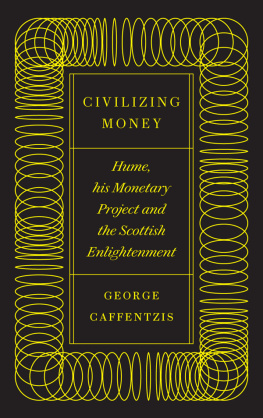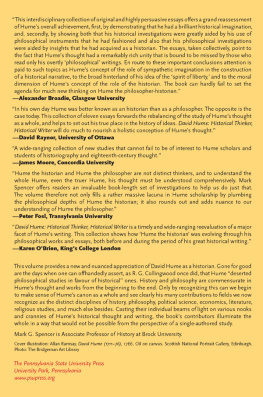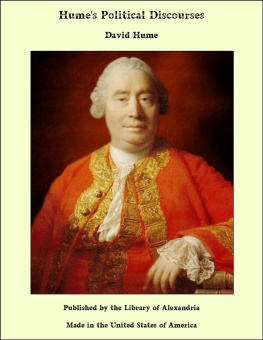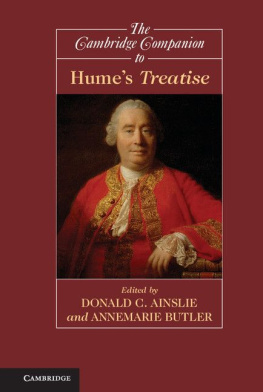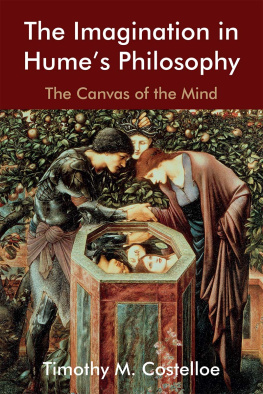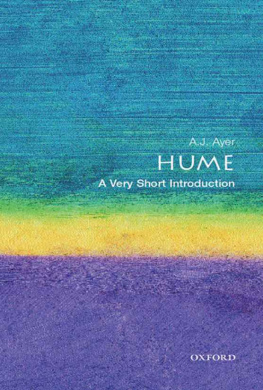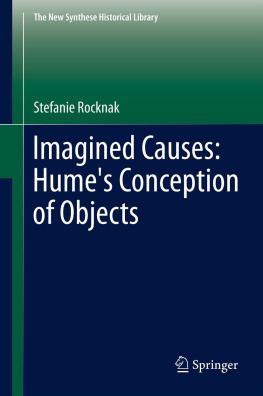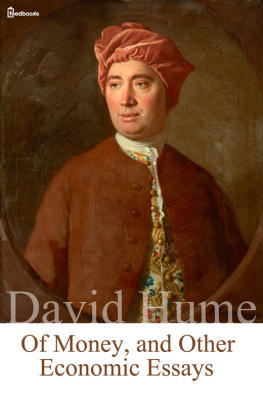Contents
Guide
Civilizing Money
Also available:
Clipped Coins, Abused Words, and Civil Government:
John Lockes Philosophy of Money
George Caffentzis
Caffentzis has been the philosopher of the anti-capitalist movement from the American civil rights movement of the 1960s. A historian of our own times, he carries the political wisdom of the twentieth century into the twenty-first. Here is capitalist critique and proletarian reasoning fit for our time.
Peter Linebaugh, author of The Magna Carta Manifesto
Civilizing Money
Hume, his Monetary Project,
and the Scottish Enlightenment
George Caffentzis
Foreword by Peter Linebaugh

First published 2021 by Pluto Press
345 Archway Road, London N6 5AA
www.plutobooks.com
Copyright Constantine George Caffentzis 2021
Every effort has been made to trace copyright holders and to obtain their permission for the use of copyright material in this book. The publisher apologizes for any errors or omissions in this respect and would be grateful if notified of any corrections that should be incorporated in future reprints or editions.
The right of Constantine George Caffentzis to be identified as the author of this work has been asserted in accordance with the Copyright, Designs and Patents Act 1988.
British Library Cataloguing in Publication Data
A catalogue record for this book is available from the British Library
ISBN 978 0 7453 4151 4 Hardback
ISBN 978 0 7453 4152 1 Paperback
ISBN 978 1 78680 680 2 PDF
ISBN 978 1 78680 681 9 EPUB
ISBN 978 1 78680 682 6 Kindle
This book is printed on paper suitable for recycling and made from fully managed and sustained forest sources. Logging, pulping and manufacturing processes are expected to conform to the environmental standards of the country of origin.
Typeset by Stanford DTP Services, Northampton, England
Simultaneously printed in the United Kingdom and United States of America
Contents
Figures and Tables
FIGURES
TABLES
Acknowledgments
First, I must acknowledge my Midnight Notes collective friends and comrades who would not let me abandon the project of completing the trilogy on the Philosophy of Money when I was tempted to do so. Every time we got together, some one would ask, How is the Hume book going? Thanks for asking!
I thank the members of the Kress Seminar on the History of Economics, especially Paul Wendt, for their useful comments on an earlier version of the chapter on Why Was Hume a Metallist?
The project of completing Civilizing Money and the trilogy of books on the philosophy of money needed new energy, but my meeting with Arlen Austin changed all that. He brought passion, humor and technological capacity to the project that got me over the moat of authorial inertia. A thousand thanks, Arlen, for your generosity with your energy and knowledge!
Finally and inevitably, I thank Silvia Federici for her thoughtful advice throughout the Philosophy of Money project. She is a philosopher who is a walking and talking counter-example to Marxs Thesis 11 on Feuerbach.
The following essays have been previously published and are reproduced by permission:
On the Scottish Origins of Civilization was originally published in Silvia Federici (Ed.), Enduring Western Civilization: The Construction of the Concept of Western Civilization and its Others (Westport, CT: Praeger Publishers, 1995).
Civilizing the Highlands: Hume, Money and the Annexing Act was originally published in Historical Reflections 37 (2005): 5160.
An earlier version of Why Was Hume a Metallist? was originally published as Hume, Money, and Civilization; Or, Why Was Hume a Metallist? Hume Studies 27(2) (2001): 301335.
300 Years Later (Newcastle Upon Tyne: Cambridge Scholars Publishing, 2011)
An earlier version of Fiction or Counterfeit? Specie or Paper? was originally published as Fiction or Counterfeit? David Humes Interpretations of Paper and Metallic Money, in Carl Wennerlind and Margaret Schabus (Eds.), David Humes Political Economy (London: Routledge, 2008).
Foreword
1.
Caffentzis writes that his project of the philosophy of money began in August 1971, when President Nixon severed the link between the dollar and gold. He further developed the project through SDS (Students for a Democratic Society) and URPE (Union of Radical Political Economics). It began to take form in his writing with Zerowork (when our paths crossed). Did the end of gold mean the end of work and did the end of work mean the end of capitalism? It achieved a major breakthrough with the Wages for Housework campaign. Owing to the crisis of the oil market and then the dangers of nuclear energy, he formulated an approach to the philosophy of money in which class analysis was combined with philosophical epistemology and the specifics of historical conjuncture. The first volume of what was to become a trilogy was completed in Calabar, Nigeria, at the time of structural adjustment under the IMF (International Monetary Fund). Political presentism and autobiographical reflection enliven the philosophic pages. He has venerable examples of such combination from Clarendons The History of the Rebellion and Civil Wars in England (17021704) to Gibbons The History of the Decline and Fall of the Roman Empire (17761789).
The approach in all three studiesLocke, Berkeley and Humecould not be more different than what we were taught in school. Traditional teaching had it that these three formed in the eighteenth century a coherence of empiricism, which could take its prideful place alongside Newtons Principia or Bacons Essays of the seventeenth century. Known as British empiricism in contrast to the rationalist philosophers of the continent (Leibniz, Spinoza), it found its place in the Anglo-American curriculum, and became one of the means through which new members of the ruling class were introduced to their philosophical heritage. The method of study was to go from one philosopher to another without any difference in time between them, except the meanest chronology. The nationalism was implied rather than proclaimed. So, for instance, the fact that one was Irish, and another Scottish, and only Locke was English was not of significance to an understanding of their philosophical ideas. Instead, we were to infer from their dates (Locke 16321704, Berkeley 16851753, Hume 17111776) that there was a steady progression to ever greater and greater truth.
Caffentzis puts history back into chronology. The British empiricistsLocke, Berkeley and Humeappeared at the consolidation of finance capitalism stretching from the foundation of the Bank of England and the recoinage of 16951696 to the American War of Independence and the consolidation of the settler-colonial project. Caffentzis understands these philosophers as human beings living at a time when particular monetary issues arose within specific historical setting. Yet, this is not cultural history which relates philosophical ideas to other cultural expressions such as music, art, architecture or literature. Nor is it quite economic history as one might find, for example, in Schumpeter, which discerns phases in the economicisms (mercantilism, capitalism).

